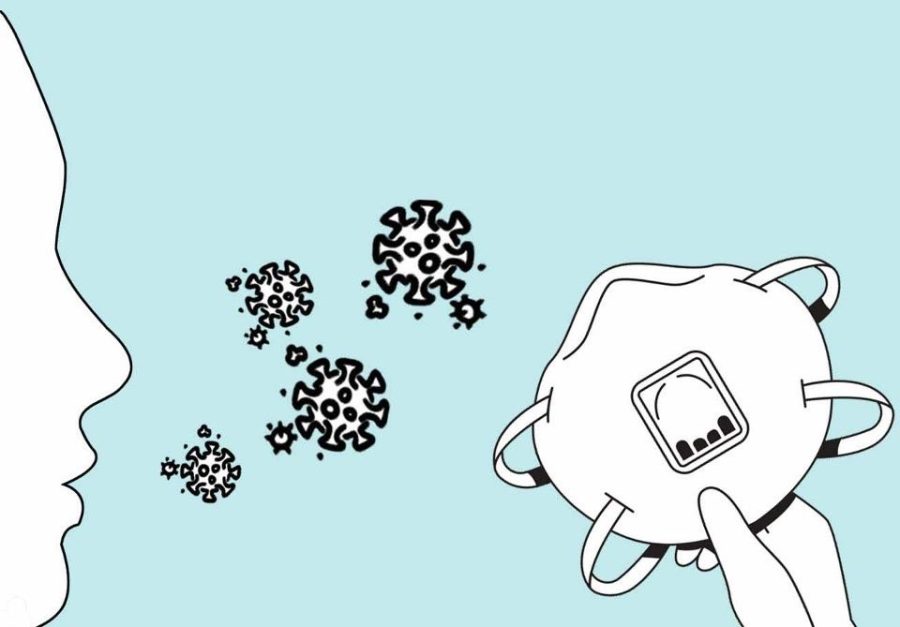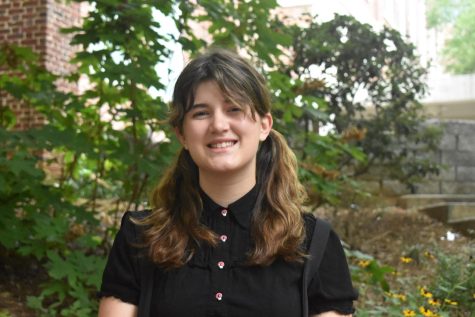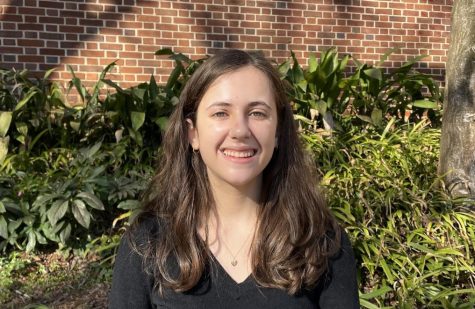High school students still need to mask up
A concerning amount of high school students are neglecting to wear their masks properly, exposing themselves and others to various pandemic-associated risks.
October 11, 2021
While multiple vaccines are now available, the pandemic is far from over. As of Oct. 11, 26,215 deaths due to COVID-19 have been reported in Georgia. Nationwide, that number is even higher, at 713,806, and worldwide, it sits at 4.85 million.
These staggering numbers show how important it still is to make an effort to protect ourselves and others to minimize further damage, such as getting the vaccine, washing hands properly, social distancing, and mask-wearing. Unfortunately, some are not taking those measures as seriously as they should.
High school students are one of those groups. Walking down the hallways to class, you can see masks below the nose, hanging off the chin, dangling from an ear, clutched in a hand, or missing altogether. These behaviors can also be observed in students gathering in large groups outside of school, or at nearby businesses such as Starbucks across the street.
The need to wear masks and strict social distancing measures can be difficult to acclimate to, and masking mistakes toward the beginning of the pandemic may have been more understandable. After all, nobody is perfect. However, now that the dangers of improper mask-wearing or not wearing a mask are more widely known, people should recognize the harm they may cause.
Even if unintentional, this negligence puts people in danger. Risk does increase with the amount of time someone spends unmasked, but even a short period of contact with an infected classmate could lead to catching the disease.
Many students who refuse to properly mask up may have reasons: they have a medical condition such as asthma;they are fully vaccinated, so it does not matter;they are only doing it for a short time;they simply cannot breathe, et cetera.
The list goes on and on, but very few justifications are legitimate. First, even those with serious lung conditions such as COPD (chronic obstructive pulmonary disease) are able to wear masks properly. If someone who struggles to take deep breaths, wheezes frequently, and cannot exercise properly can wear a mask, a perfectly healthy student should be fine.
Also, vaccinated people can still spread Covid and breakthrough cases —where serious infections occur after full vaccination —do occur. As previously mentioned, it does not matter if someone only takes their covering off for “just a few minutes.” The virus does not care about time, and can still take hold.
Fully vaccinated students may be especially likely to refuse mask-wearing, as they may think the vaccine protects them from getting COVID. While it is true the vaccine lowers hospitalization and death rates, vaccinated people can still contract the disease, and the Mayo Clinic said proper mask wearing is still a crucial element in slowing the spread, especially if combined with other protectionary measures, such as social distancing.
Some may believe they will immediately notice signs of the illness and self isolate. This is not the case, as the Centers for Disease Control and Prevention (CDC) said the incubation period for COVID-19 is anywhere from two to 14 days. Within this time, someone who neglects to wear a mask can spread the illness to an unknown number of people, including vulnerable groups, such as the elderly, people with legitimate mask exemptions (although there are few, going by CDC guidelines), the immunocompromised and small children.
Asymptomatic cases are possible, as are false negatives. Simply put, an individual could become a superspreader and not even realize it if they refused to wear a mask.
In the end, refusing to properly wear a mask at school and other public places makes individuals less safe and increases community risks. Those who are not taking COVID seriously should realize the risk they are taking and the harm their ignorant actions will cause.








